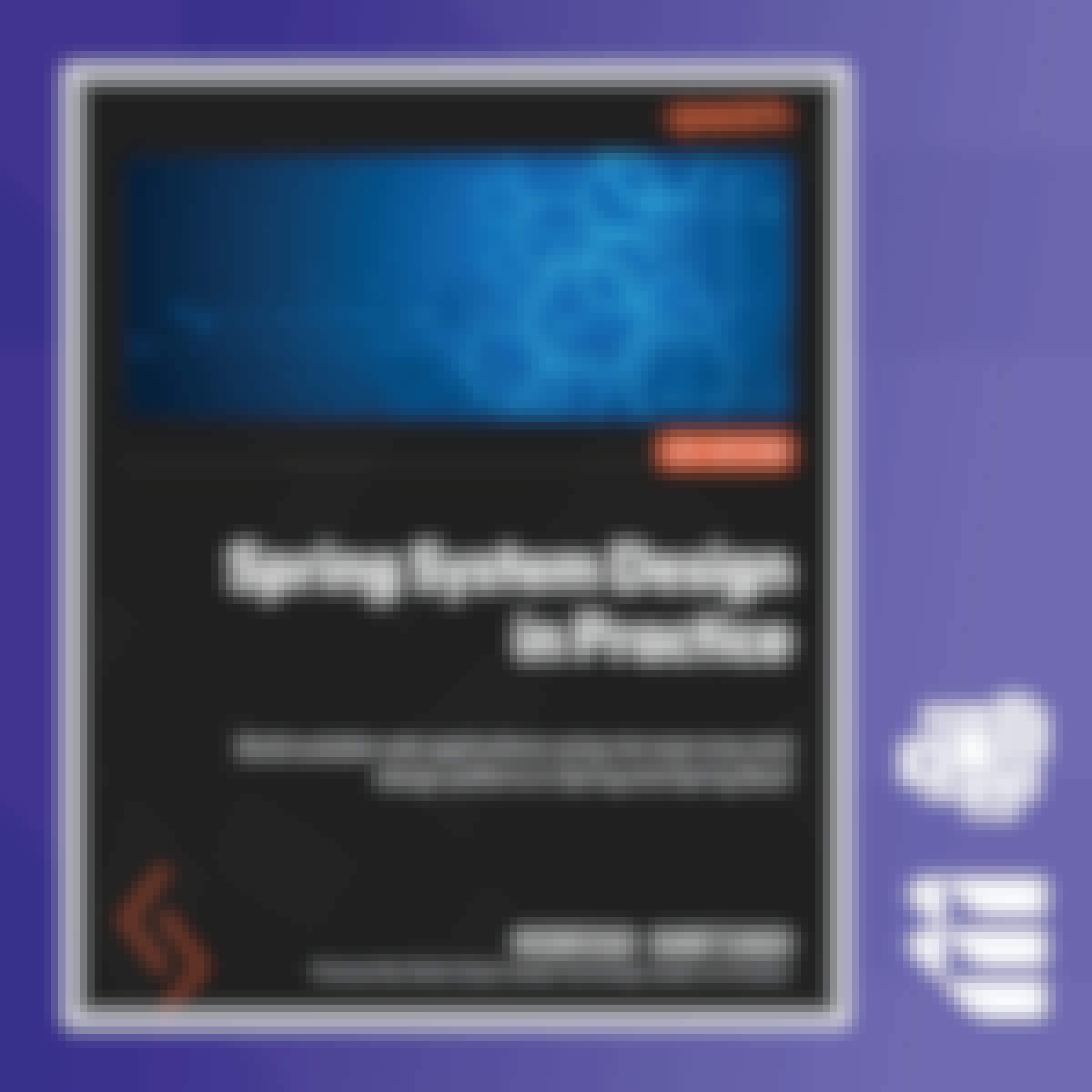- Browse
- Thread Synchronization Techniques
Results for "thread+synchronization+techniques"
 Status: Free TrialFree TrialR
Status: Free TrialFree TrialRRice University
Skills you'll gain: Apache Kafka, Apache Spark, Apache Hadoop, Distributed Computing, Dataflow, Java Programming, Java, Software Architecture, Systems Architecture, Scala Programming, Data Structures, System Programming, Programming Principles, Servers, Application Frameworks, Debugging, Algorithms, Performance Tuning, Functional Design, Performance Testing
4.6·Rating, 4.6 out of 5 stars1.6K reviewsIntermediate · Specialization · 3 - 6 Months
 Status: NewNewStatus: Free TrialFree Trial
Status: NewNewStatus: Free TrialFree TrialSkills you'll gain: C++ (Programming Language), Software Documentation, System Programming, Technical Documentation, Application Development, Maintainability, Data Structures, Generative AI, Application Performance Management, Algorithms, Scalability
Beginner · Course · 1 - 3 Months
 Status: NewNewStatus: Free TrialFree Trial
Status: NewNewStatus: Free TrialFree TrialSkills you'll gain: Data Structures, Algorithms, Computational Thinking, Programming Principles, Computer Programming, Computer Science
Advanced · Course · 1 - 3 Months
 Status: NewNewStatus: Free TrialFree TrialM
Status: NewNewStatus: Free TrialFree TrialMMicrosoft
Skills you'll gain: Program Development, Data Validation, Microsoft Development Tools, Security Testing, Software Development Tools, Development Environment, Performance Testing
Beginner · Course · 1 - 3 Months
 Status: NewNewStatus: Free TrialFree Trial
Status: NewNewStatus: Free TrialFree TrialSkills you'll gain: Apache Kafka, Data Pipelines, Integration Testing, Transaction Processing, Data Integrity, Real Time Data, Apache Spark, Data Architecture, System Design and Implementation, Service Level, Event Monitoring, Performance Tuning, Project Implementation, Apache, Production Management, Internet Of Things
Intermediate · Course · 1 - 4 Weeks
 Status: Free TrialFree TrialU
Status: Free TrialFree TrialUUniversity of California, Irvine
Skills you'll gain: Go (Programming Language), Algorithms, System Programming, Operating Systems, Computer Architecture
4.7·Rating, 4.7 out of 5 stars796 reviewsIntermediate · Course · 1 - 4 Weeks
What brings you to Coursera today?
 Status: Free TrialFree TrialB
Status: Free TrialFree TrialBBoard Infinity
Skills you'll gain: Java Programming, Java, System Programming, OS Process Management, Software Design Patterns
Intermediate · Course · 1 - 4 Weeks
 Status: NewNewStatus: PreviewPreview
Status: NewNewStatus: PreviewPreviewSkills you'll gain: Role-Based Access Control (RBAC), Application Performance Management, System Monitoring, Performance Tuning, Devops Tools, Site Reliability Engineering, Continuous Monitoring, Application Deployment, Transact-SQL, Transaction Processing, Enterprise Application Management, Incident Management, Anomaly Detection, Microservices, Performance Analysis, Containerization, Email Automation, Real Time Data, Analysis, Health Policy
Advanced · Course · 1 - 4 Weeks
 Status: Free TrialFree TrialL
Status: Free TrialFree TrialLLearnKartS
Skills you'll gain: Java Programming, Java, Object Oriented Programming (OOP), Mathematical Software, Performance Tuning
4.8·Rating, 4.8 out of 5 stars13 reviewsIntermediate · Course · 1 - 4 Weeks
 Status: NewNew
Status: NewNewSkills you'll gain: Restful API, Spring Framework, Microservices, Cloud Deployment, API Design, Spring Boot, OAuth, System Design and Implementation, Java, Systems Design, Service Oriented Architecture, Software Design, Performance Tuning, Authentications, Web Design and Development, Sprint Planning, NoSQL, SQL, Databases, Product Management
Beginner · Course · 1 - 3 Months
 Status: NewNewStatus: Free TrialFree Trial
Status: NewNewStatus: Free TrialFree TrialSkills you'll gain: Apache Kafka, Data Loss Prevention, Performance Tuning, System Monitoring, Prometheus (Software), Scalability, Real Time Data, Grafana, Process Optimization, Distributed Computing, System Configuration, Command-Line Interface, Content Strategy
Intermediate · Course · 1 - 4 Weeks
 Status: NewNew
Status: NewNewSkills you'll gain: Browser Compatibility, Web Applications, Node.JS, Javascript, Network Troubleshooting, Web Services, Front-End Web Development, Debugging, Real Time Data, Web Servers, Application Programming Interface (API), Telecommunications, Servers, Network Protocols
Intermediate · Course · 1 - 3 Months
In summary, here are 10 of our most popular thread+synchronization+techniques courses
- Parallel, Concurrent, and Distributed Programming in Java: Rice University
- Advanced C++ Programming and Modern Practices: Microsoft
- Advanced Algorithms and Problem-Solving Techniques: Packt
- Professional C# Development Practices: Microsoft
- Ensure Consistency in Streaming Pipelines: Coursera
- Concurrency in Go: University of California, Irvine
- Java Multi-Threading Mastery: From Basics to Advanced: Board Infinity
- AppDynamics: From Basics to Performance Mastery: Coursera
- Core Java - Multithreading and Classes: LearnKartS
- Spring System Design in Practice: Packt










